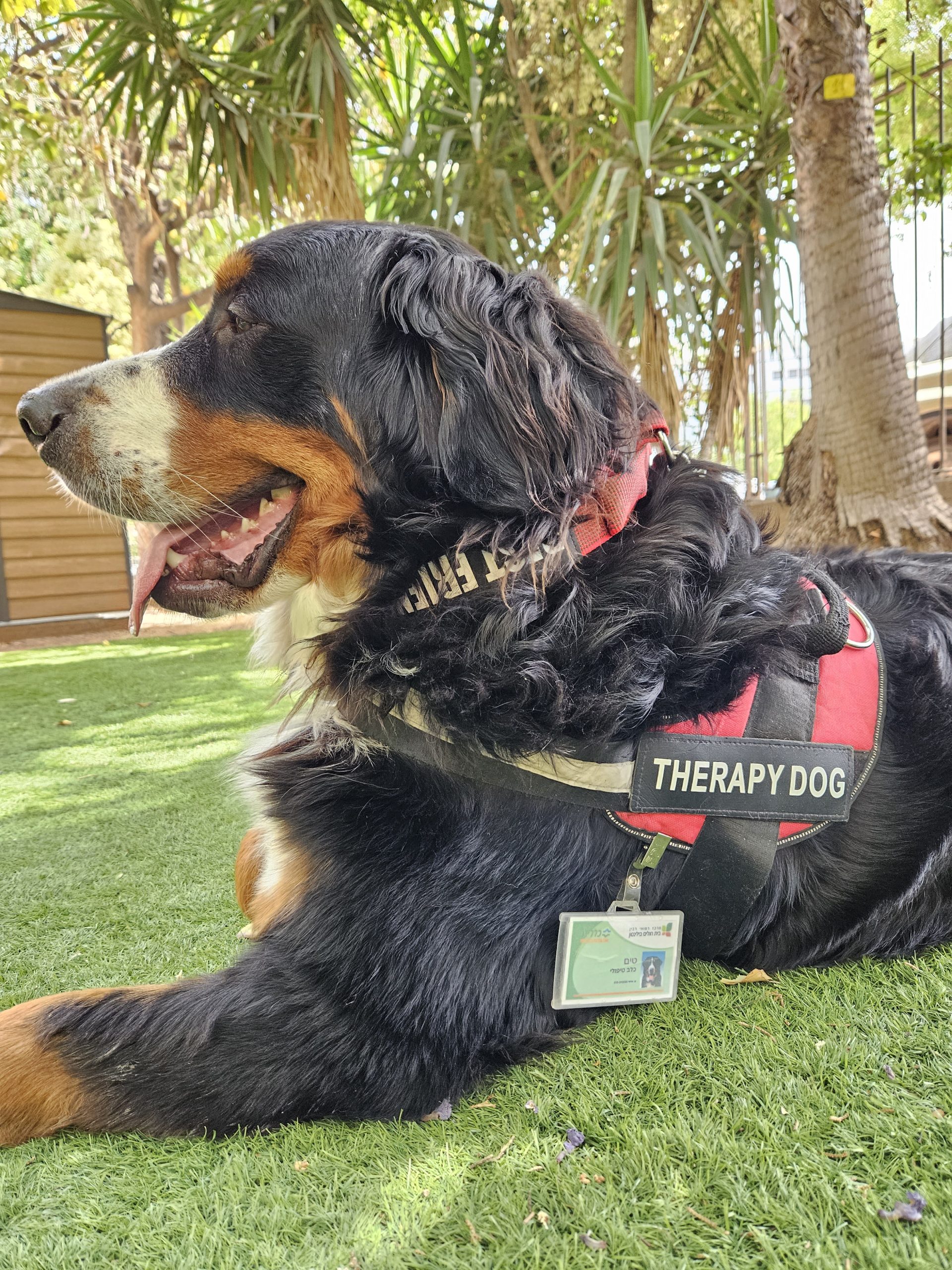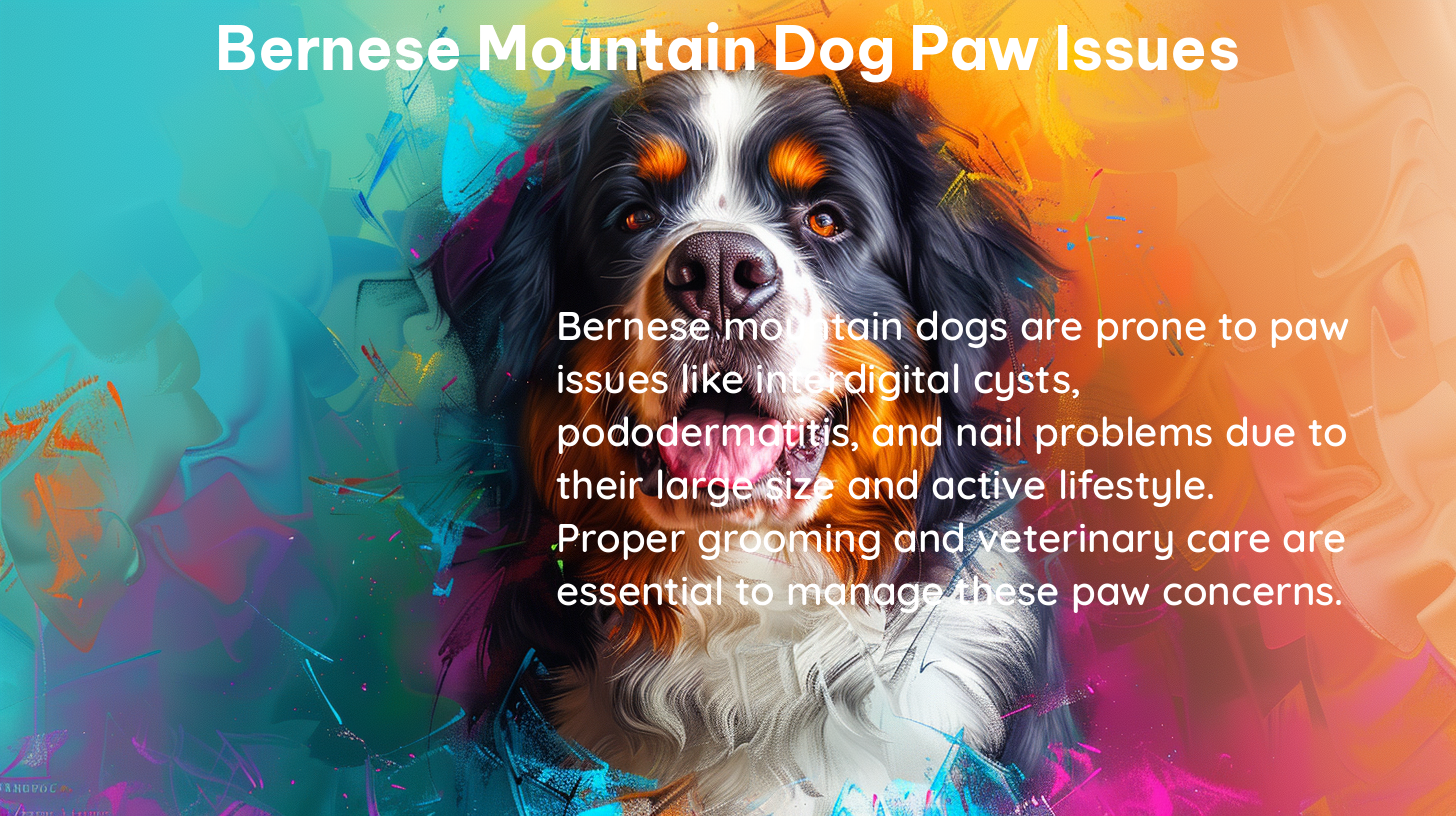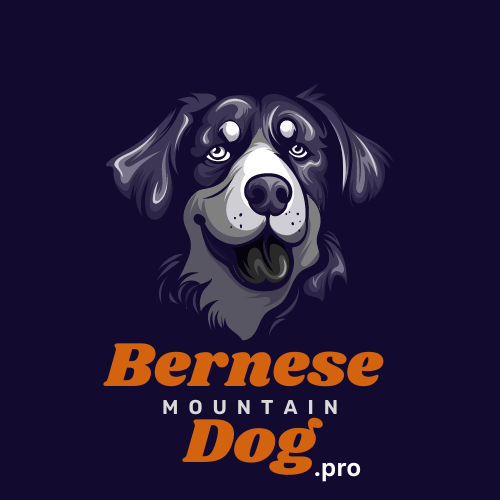Bernese Mountain Dogs are beloved for their gentle nature and striking appearance, but they can also be prone to various paw issues that require attentive care. From allergies and infections to nail problems and cracked pads, understanding the common paw concerns in this breed is crucial for maintaining their overall health and comfort.
Identifying Bernese Mountain Dog Paw Issues

Allergies
Bernese Mountain Dogs are susceptible to environmental and food allergies, which can manifest in the form of itchy, irritated paws. Signs of paw allergies include excessive licking, chewing, or rubbing of the paws, as well as frequent ear infections.
Infections
Yeast and bacterial infections can also affect the paws of Bernese Mountain Dogs. Yeast infections often produce a distinctive sour odor, while bacterial infections may cause redness, swelling, and pain.
Nail Issues
Overgrown, torn, or ingrown nails can be a common problem in Bernese Mountain Dogs. Long nails can cause discomfort when walking, while torn or ingrown nails can be painful and lead to infection.
Burns and Blisters
Bernese Mountain Dogs can suffer from burns and blisters on their paws, particularly when walking on hot surfaces. These injuries can cause swelling, redness, and discomfort.
Dry and Cracked Paw Pads
Exposure to harsh environmental conditions, such as hot pavement, cold weather, or chemicals, can lead to dry, cracked paw pads in Bernese Mountain Dogs. Excessive licking can also contribute to this issue.
Preventing and Treating Bernese Mountain Dog Paw Issues

Regular Nail Trimming
Keeping your Bernese Mountain Dog’s nails trimmed on a regular basis is essential to prevent overgrowth and ingrown nails.
Paw Checks
Regularly inspecting your dog’s paws for any signs of problems, such as redness, swelling, or unusual odors, can help you identify issues early and seek prompt veterinary care.
Moisturizing
Using dog-specific moisturizers can help keep your Bernese Mountain Dog’s paw pads hydrated and prevent dryness and cracking.
Avoiding Irritants
Limiting your dog’s exposure to hot surfaces, chemicals, and other potential irritants can help prevent paw-related issues.
Veterinary Care
If you suspect any paw problems in your Bernese Mountain Dog, it’s important to consult your veterinarian. Prompt treatment can help prevent further complications and ensure your dog’s comfort.
By being proactive and addressing paw issues early, you can help keep your Bernese Mountain Dog’s paws healthy and happy. Remember, regular check-ups, preventative measures, and prompt veterinary care are key to maintaining your furry friend’s overall well-being.

Sarah Johnson
Sarah Johnson is a devoted Bernese Mountain Dog enthusiast and regular contributor to Bernese Mountain Dog Pro. With over a decade of experience in raising and training Berners, Sarah brings practical knowledge and passion to her writing. Sarah lives in Colorado with her two Berners, Max and Bella.